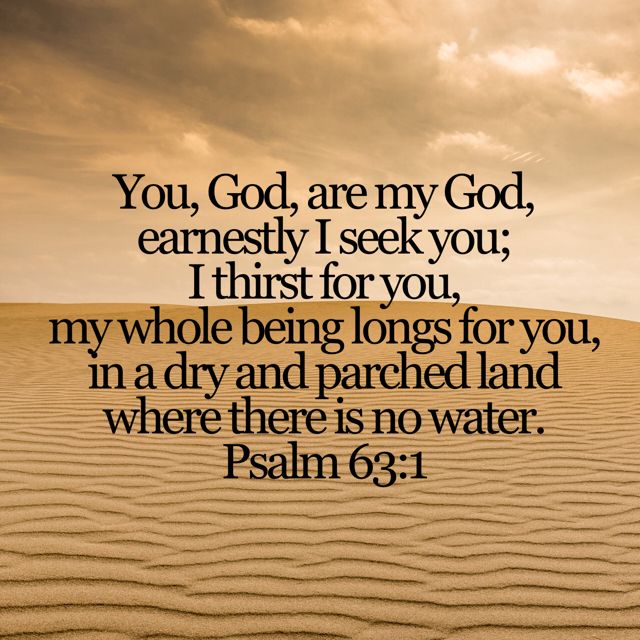If we carefully consider the end of the 1st line of Ps.63:1, we can easily discern that David’s disposition of earnestly seeking God is in direct opposition to the fatalism that sounds like this: “I’m stuck and I can’t do anything until I feel close to God.” That is completely contradictory to what we see in the entirety of the Psalms and in this Psalm specifically. Think about it this way: If you’re physically starving, you would earnestly seek for food as you are able. In the same way, the spiritual hunger pains are designed to drive us to God, just like physical hunger pains drives us to food. No one would ever say when they are starving: “I need my stomach to feel full before I eat food.” But we do it all the time in the spiritual realm—“I need to feel close to God BEFORE I earnestly seek him.”
This represents a severe lack of faith and is putting the cart before the horse, as Jesus himself taught on multiple occasions. As a preview of what is coming in v.5 in David’s situation, listen to Jesus’ words in Matt. 5:6 “Blessed are those who hunger and thirst for righteousness, for they will be satisfied…and John 6:35 Jesus said to them, “I am the bread of life; he who comes to Me will not hunger, and he who believes in Me will never thirst.
Instead of believing many passages in Scripture, which describe the necessity of seeking after God, what do we conclude in times of dryness instead?—That surely God is finished with us; that’s there is no way we can get back to the communion with God we once had; that we are trapped in this miserable state for the rest of our lives. All that describes a self-inflicted prison sentence.
On the contrary, God is our exclusive source of sustenance and he can always be found by those who diligently seek him (1 Chron. 16:10-11).

